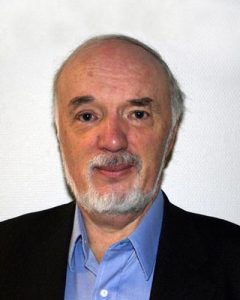Emeritus Professor Olav Eldholm, passed away April 18 2022 at the age of 80.

In Memoriam Olav Eldholm (1941 – 2022)
Eldholm was elected member of Academia Europaea since 1990, and a prominent person in the international geoscience community. He was also a member of the Norwegian Academy of Science and Letters and a number of several national and international academies. Eldholm studied geophysics at the University of Bergen, and spent formative years as research scientist at Columbia University´s Lamont-Doherty Earth Observatory in New York before returning to Norway for a professorship at the University of Oslo in 1974.
At that time Lamont-Doherty was arguably the global hothouse for marine geoscience, and Eldholm soon became an important member of the global community in the field with key collaborators. Most influential was perhaps his collaboration with Manik Talwani, which also resulted in the prominent monograph Evolution of the Norwegian-Greenland Sea in 1971.
Eldholm was widely known internationally for his significant contributions to marine geophysics and geodynamics, notably to the understanding of continental margins, ocean basins, volcanism and plate tectonics –in particular in the North Atlantic region. In 2021 an ancient volcano on the Vøring Plateau was named Eldhø to honour his contributions to science. His research has also been highly influential for oil and gas exploration and production on the Norwegian Continental Shelf not least with many of his students moving to central positions in the industry.
Eldholm was a key person in international programmes in marine Earth Science, and he was for many years deeply involved as a leading figure in the Ocean Drilling Program, where he was a keen promotor of getting young scientists involved in this major global scientific undertaking. This has shaped many excellent scientific careers.
In 2003 Eldholm moved back to his Alma Mater in Bergen to become head of the newly merged Department of Earth Science at the University of Bergen which he led as a dynamic leader for six years before retiring to become an emeritus professor. He was an active emeritus and continued with producing new scientific publications. His legacy is important and many in the national and international marine geoscience community will miss him as an interested and inspiring colleague.
Eystein Jansen
